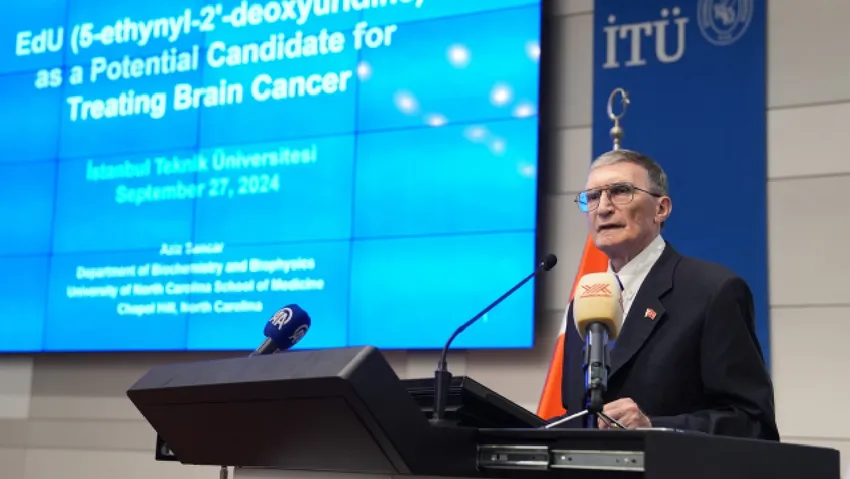Nobel Prize-winning scientist Prof. Dr. Aziz Sancar’s discovery of the ‘EdU molecule,’ which has been proven effective against brain cancer in animals, will be tested in humans over the next two years. Prof. Dr. Sancar stated that the experiments conducted on mice have yielded successful results, indicating that the molecule could potentially serve as a treatment for brain cancer. However, he emphasized that clinical trials must be conducted for two years to investigate any side effects before it can be used in humans.
Sancar made the initial announcement regarding this “exciting discovery” on February 17, 2022. Since then, he has been conducting extensive research in his laboratory and continuing experiments on mice.

Sancar explained that they began mouse experiments after the laboratory trials, detailing the process as follows: “By collaborating with neuroscience departments at universities, we took a piece of human brain tumor and placed it on slices of mouse brain to create a cell model that resembles reality. Human tumor cells were injected into the mouse brain, and we examined the effects of EdU on brain tumors. Initially, the existing drug showed better efficacy in mice, but after 30-40 days, we observed that the EdU molecule had a better effect, reaching up to 25%. When combined with existing drugs, the results were even more promising.”
Emphasizing that a two-year trial period is necessary for the EdU molecule to be used in humans, Sancar stated, “The properties of EdU could make it the foundation of an effective brain cancer drug. While EdU can kill rapidly dividing cancerous brain cells, it can protect non-dividing healthy brain cells. EdU works in animal models for brain cancer, but we need to investigate its side effects in clinical trials over the next two years before it can be used in humans. During this period, we will need to focus on the side effects of the EdU molecule in humans. I am also working to transfer this new method related to DNA repair to Türkiye.”

